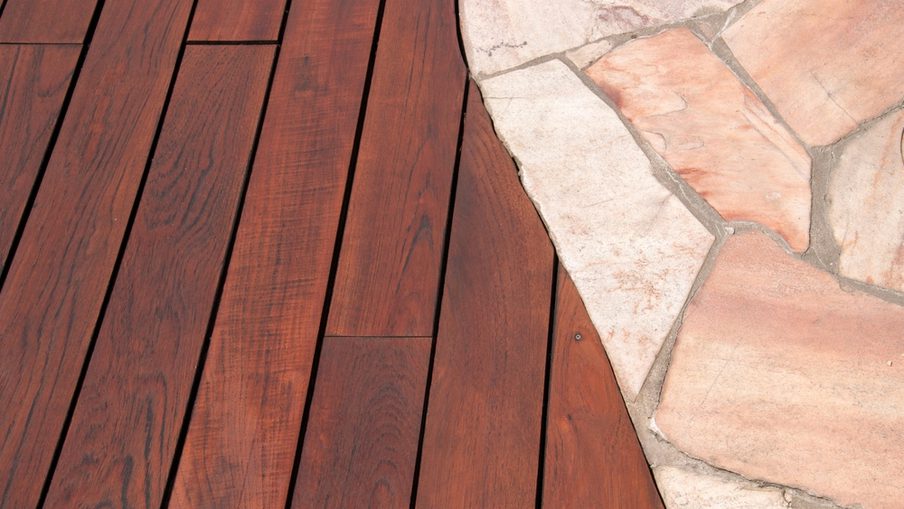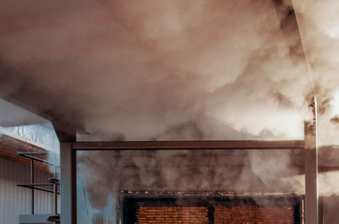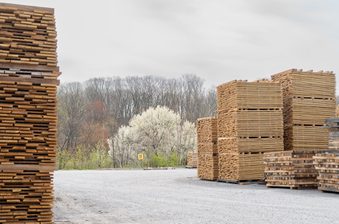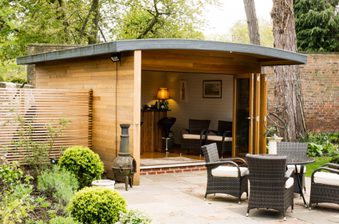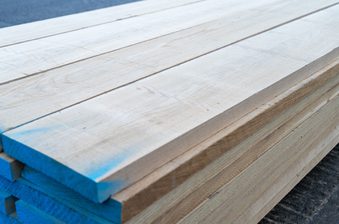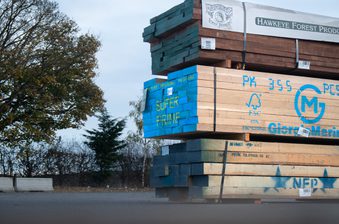Whilst cherished for its natural beauty, some types of wood can be prone to dents and damage.
Not all timbers, however. Some take knocks, bumps, wear and abrasion in their stride; a few can even withstand the power of crocodile bites without a scratch to show for their trouble. Behold, the world’s strongest woods!
(By the way, since some of these woods can be very expensive and rare, we’ve followed up with a list of those that are widely available, in case you were planning a decking, flooring or furniture project.)

The world’s strongest, hardest types of wood
One popular measurement for the hardness of woods is the Janka test. It shows how much force is needed to implant a small steel ball into a sample of wood — so it’s a great way of measuring resistance to wear, dents and scratching.
Top 25 timber species ranked by hardness (Janka hardness test) | |
Timber species | Force (newtons) |
Australian buloke | 22,500 N |
Barauna | 21,000 N |
Willow-leaf red quebracho | 20,300 N |
Guayacan | 20,000 N |
Snakewood | 17,000 N |
African pearwood | 16,400 N |
Ipe | 16,390 N |
Bolivian cherry | 16,200 N |
Brazilian ebony | 16,000 N |
Sucupira | 15,200 N |
Kingwood | 14,900 N |
Cumaru (Brazilian teak) | 14,800 N |
Ironwood | 14,500 N |
Ebony | 14,300 N |
Massaranduba (Brazilian redwood) | 14,200 N |
Yvyraro | 13,500 N |
Cocobolo | 13,200 N |
Strand-woven bamboo | 13,000 N |
Boxwood | 12,600 N |
Red mahogany | 12,000 N |
Turpentine | 12,000 N |
Southern live oak | 11,900 N |
Spotted gum | 11,000 N |
West Indian locust | 10,500 N |
Mesquite | 10,430 N |
For reference, 18,000 N is the estimated bite force of a 6.1m adult great white shark; 16,500 N is the bite force of a large saltwater crocodile. So, these are some pretty strong woods!
At the opposite end of the spectrum are woods like Basswood (1,800 N), Western red cedar (1,600 N) and, the softest wood recorded, Balsa (310 N). Whilst this relative ‘softness’ can make them unsuitable for flooring or decking, ‘softer’ woods can still have many applications.
Western red cedar, for example, is very naturally durable and sought after for its stunning appearance. It is popularly applied outdoors for cladding and fencing, where knocks and abrasions aren’t such a big consideration. It contains natural substances protecting it against moisture and insect attack.
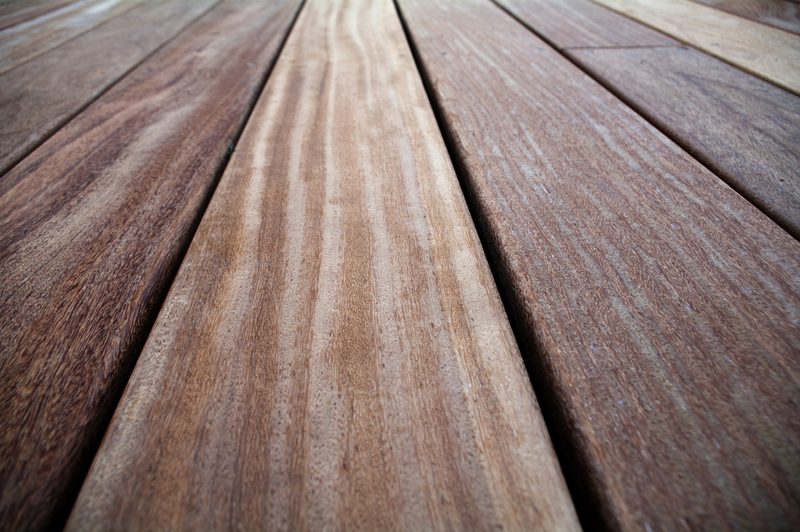
Whilst the list above is a definitive rundown of the world’s top 25 hardest woods, it’s not particularly helpful if you’re seeking some wood for a project you’re working on. Which brings us onto…
The strongest, most widely commercially available woods
Many of the world’s strongest woods can be particularly rare and expensive, making it difficult to get your hands on them. Fortunately, there are a number of very strong species that are much more abundant and commercially available, making them kinder on your wallet (and the planet!).
Timber species | Force (newtons) |
7,300 N | |
Zebrano (Zebrawood) | 7,010 N |
6,700 N | |
6,400 N | |
6,000 N | |
5,900 N | |
5,800 N | |
5,600 N | |
European oak (English oak) | 5,000 N |
4,900 N | |
4,500 N | |
4,430 N |
Leading the way are a number of African hardwoods, cherished not only for their phenomenal strength and hardness, but often unique appearance. Check out Zebrano’s eye-catching dark and golden brown striped grain, or Wenge’s almost-black appearance.

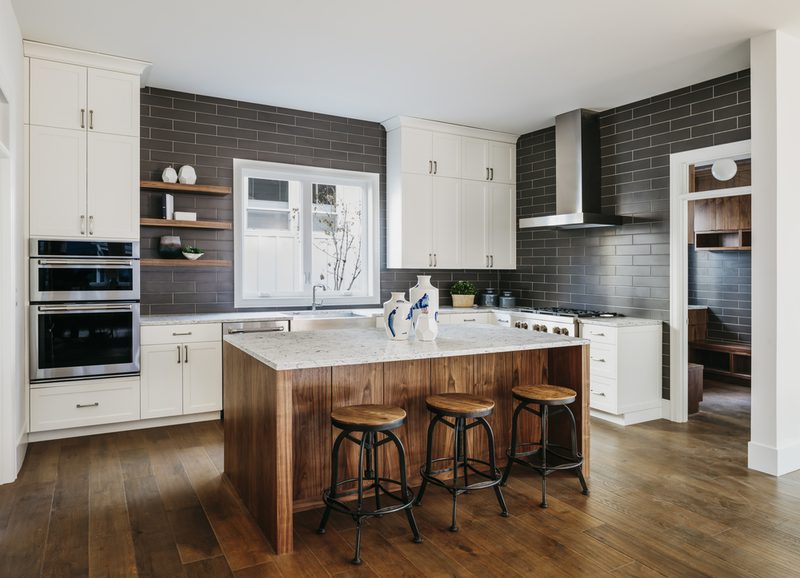
Siberian larch and Iroko are two particuarly strong woods that are very well suited to outdoor application. Other high-performing decking timbers include thermally-modified options like Thermo-Radiata Pine, Thermo-Pine and Thermo-Frake.
Interestingly, Siberian larch is actually classified as a softwood, but is actually harder than many hardwoods. For more on the finer distinctions, head over to our article exploring the differences between hardwood and softwood.
Whilst these woods aren’t quite as hard as those listed earlier on, they’re certainly strong enough for almost any application where hardness is a key consideration.
If you’re after a particularly sturdy species for your next project, we can help. As a leading UK timber importer, all of the woods listed above are available in our extensive range of hardwoods and softwoods.
Get in touch through our website contact page, or by using the button below.
